SDEA Spotlight: Sheila Wee
by SDEA
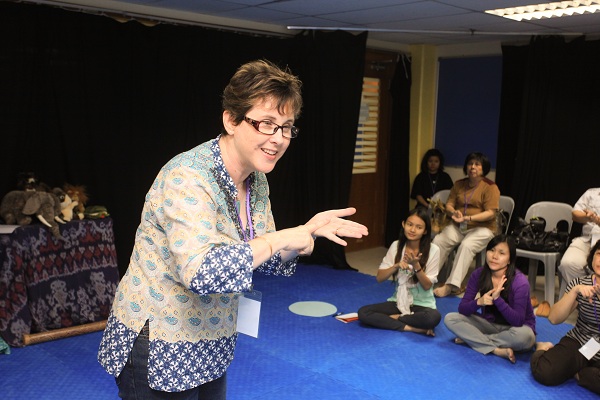
Sheila Wee is a professional storyteller, storytelling trainer and story consultant, who is one of the leading champions in the revival of storytelling in Singapore.
1. What are you working on at the moment?
I am working on a folktale storybook with illustrator and comic artist Andrew Tan aka Drewscape. This is a very interesting process for me as I have to totally re-craft a story that I have been orally telling for years, into a form that both suits the written word and melds seamless with the illustrations. I am also preparing for a workshop to teach senior doctors and healthcare workers to use stories in their lectures to their younger colleagues. I have trained university faculty in this before, but this is the first time I am working in the medical field.
Coming up in April is my regular twice-yearly Introduction to Storytelling Workshop, which I have been running in one form or another since 1999. This is one of my favourite workshops to run as I get such a varied group of people signing up for it. I have had CEOs, social workers, business school professors, engineers, trainers, librarians, school teachers and drama teachers. This mix and the fact that I often get people flying in from the region makes for an energetic and creative atmosphere.
I am in the middle of a NAC Silver Arts Project called Words of my Youth: Passing on Our Oral Heritage 口传文化, 代代相传. This project involved 23 seniors and 4 storyteller facilitators in collecting Chinese dialect rhymes from the community and publishing them on a specially set up Facebook page in order to preserve them and pass them down to future generations. In this project we also facilitated the sharing of personal stories among the seniors and taught them some basic storytelling techniques. This was perhaps an unusual project for me to take on because it is conducted in Mandarin and Chinese dialects, none of which I speak. But by taking on the project manager role I was able to offer an opportunity for 4 very talented storytellers to further develop their experience in working with seniors. It has also been very rewarding seeing the fulfilment that the seniors have got out of contributing to this project and knowing that in some small way I have contributed to the preservation of this rich cultural heritage.
It’s still early in the year, but I am already busy planning for the 4th year of the 398.2 Storytelling Festival in November which I run with my co-director Roger Jenkins under the non-profit Story Connection Ltd. This is a free community storytelling festival that both provides an immersive storytelling experience for families and brings together amateur, professional and international storytellers. This year’s festival will be a special one, as we are planning to combine it with a conference to launch FEAST (The Federation of Asian Storytellers). This Federation will work to help storytellers across Asia in their work of promoting storytelling, both as an art form and a tool for social good.
**
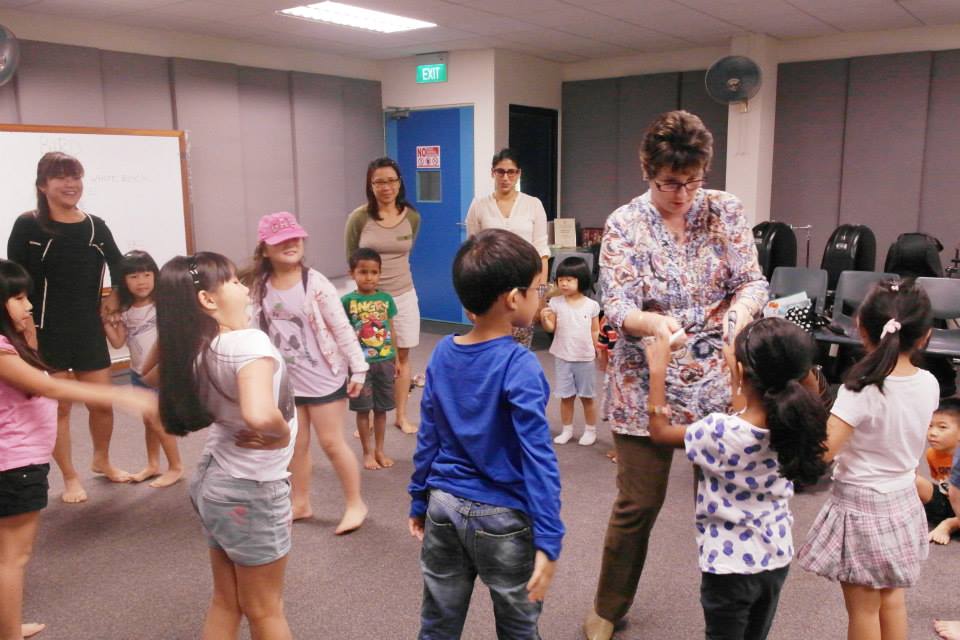
- What’s the direction of your work? Has it changed over the years?**
My work has changed a lot over the years. When I first started as a storyteller I worked a lot in schools and directly with students. This was my comfort zone, as I had been a drama teacher for about 10 years at that point. In the last 10 years, I have decreased my focus on work in schools as there are now so many organisations offering storytelling programmes in primary and secondary schools and it is difficult to compete on price. I do miss the regular direct contact with students, but apart from the competition factor, I also made a conscious decision to work where I would have most effect.
For me, that has to be working with teachers and empowering them to use storytelling in the classroom. That is one of the reasons I so love my workshops for early childhood teachers that I do under the ECDA continuing professional development programme. Given our educational system, it is easier to integrate storytelling into the early childhood classroom than at other levels and it is very satisfying to see teachers gain the confidence and skills to do so.
In the last 10 years, I have delved beyond teaching storytelling skills into the application of storytelling in various areas. This has seen me train docents and tourist guides in using storytelling in their tours, work with military commanders and corporate executives on using storytelling as an organisational tool, train university faculty on using stories in their lectures and university students on using stories in interviews.
Alongside this paid work, I have been doing more and more mentoring of storytellers. I’ve just turned 60, and as you get older you start to think more about passing on to the next generation. There is no point in starting a storytelling movement if it dies out after you. So now, much of my time is spent mentoring and supporting other storytellers in Singapore and the region.
3. What is a dream project that you hope to do?
I am lucky in that I have already completed several of my dream projects. For now, getting FEAST (Federation of Asian Storytellers) off the ground is my big dream. In Singapore, storytelling is very well supported in comparison to the struggles that storytellers in many of neighbouring countries have to go through. I would like to see the federation supporting the storytelling work that is going on in Asia and so helping to support the revival of storytelling as an art form and a community building tool.
**
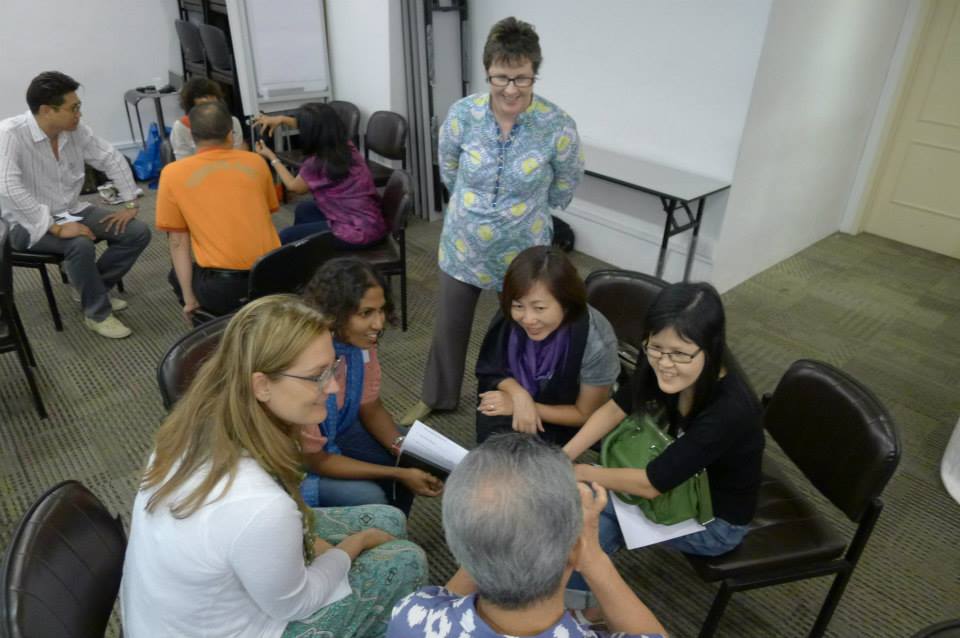
- How did you start out doing what you do?**
Whilst I have been telling stories since childhood and often used them in my work as an early childhood teacher and later a drama teacher. My first introduction to the concept of the professional storyteller was in 1998 when I attended a storytelling workshop organised by the Book Council conducted by American professional storyteller Cathy Spagnoli. I attended that workshop with my friend Kiran Shah and it’s not an overstatement to say that the workshop changed both our lives. We both became fascinated with storytelling, something that at that time had virtually died out in Singapore, and it became our mission to revive it.
5. How do you keep your work fresh?
I think my work keeps me fresh. Although, I now work only in storytelling, there are so many applications for it, that every year I am learning something new and develop new workshops.
6. What do you think makes a perfect drama educator?
For me, the perfect drama educator is one who is constantly curious, always learning and not afraid to try out new ideas. That mindset, combined with an attitude that respects every individual’s humanity, makes for a powerful combination for every type of teacher.
7. Why is drama important? Why should it be taught in schools?
Drama is about life, about what it is to be human. Many of the things we learn in school, are never used again when we leave the classroom. But the explorations that can take place with a drama class, can open hearts and minds, and the skills we learn through drama can be transferred into many areas of our lives.
**
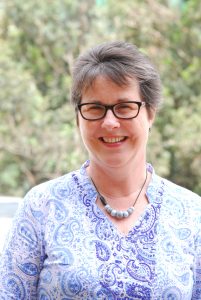
- Who was the drama educator that has the most impact on you?**
It was Tina Sergeant. She taught me improv when I was doing my Guildhall Speech and Drama Teaching Diploma. What I learnt from her, has had a big impact on my ability to be a good storyteller. Storytelling is really extended verbal improv – the ability to get beyond and beneath the words and the form of the story, and create and recreate it in the moment of telling.
9. What is your most memorable moment in the classroom/on stage?
It was with one particular class of normal technical students. I was doing a storytelling workshop and it was hard. The boys were throwing chairs around and the girls were listless with their heads on their desks. Every 30 seconds there was some sort of disruption from one or other of them, so my lesson plan went out of the window and I can’t say that it was a successful workshop. But in that classroom, I truly saw the power of storytelling. Every time I told a story every eye was on me and there was pin drop silence. I had total focused attention from all the students for the 10 minutes of each story, and then as soon as I finished, it was back to the disruptive behaviour again. I have seen the power of storytelling across all age groups, with small intimate audiences and with audiences of more than a thousand, with high flyers and special needs students, but that one afternoon with those normal technical students was perhaps the most dramatic demonstration of that power.
**
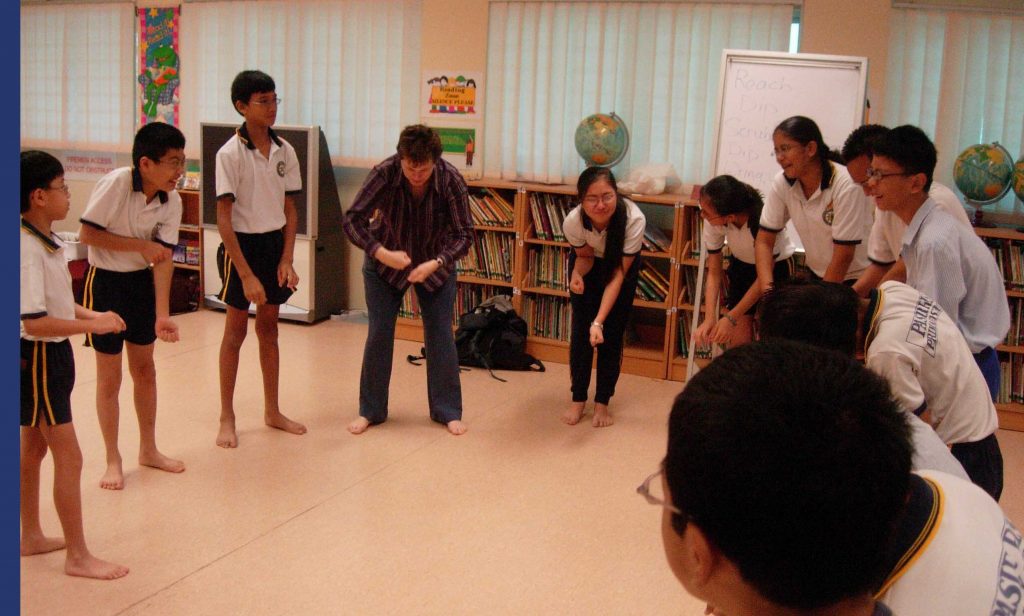
- Share a drama activity that you love to do.**
I love to get people improvising stories. A simple fun way to do that is to get them into pairs and get one partner to start making up a story and the other to give them a random word every few sentences, which they then have to incorporate into the story.
11. What do you hope to see in Singapore's drama/theatre landscape in future?
I really hope that teachers at every level will see drama and storytelling as an effective teaching tool that is a normal part of their skillset. We will always need specialised drama teachers but I would like to see drama techniques widely used as an everyday teaching method.
12. In one word, sum up your drama education journey.
Adventure
New to storytelling? Don't miss Sheila Wee's Introduction to Storytelling workshop happening from 21-22 Apr 2018. Click here for more details.
Make sure you 'Like' and follow these Facebook pages for updates on the NAC Silver Arts Project, and the 398.2 Storytelling Festival taking place in November.



